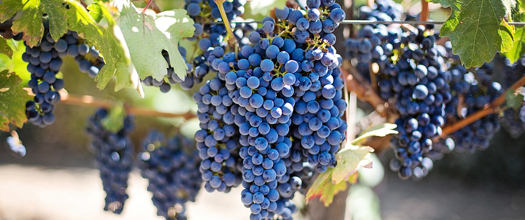
SMS Notifications & Alerts for Agriculture: Reliable and Efficient Solutions
Agriculture is a vital industry that requires timely communication, efficient operations, and proactive management. SMS notifications and alerts have emerged as reliable and efficient solutions for enhancing communication and streamlining agricultural practices. By leveraging the power of text messaging, farmers, agricultural businesses, and stakeholders can stay informed about critical information, receive timely updates, and improve overall productivity.
SMS notifications and alerts can benefit the agriculture sector, from weather advisories and market updates to equipment maintenance reminders and pest management notifications. By adopting SMS notifications, the agriculture industry can optimize operations, make informed decisions, and maximize yield. The following are a variety of ways that text messaging is used in agriculture:
I. Weather Advisories and Crop Management
Weather Notifications:
Real-Time Updates: SMS notifications provide farmers with real-time weather updates, including forecasts, precipitation alerts, and severe weather warnings. This allows farmers to make informed decisions regarding irrigation, harvesting, or other crop management practices.
Frost and Heat Alerts: Textnotifications can provide critical alerts about potential frost or heatwaves, enabling farmers to take appropriate measures to protect their crops from extreme temperatures.
Pest and Disease Management:
Pest Outbreak Notifications: Text messages can alert farmers about potential pest outbreaks or disease threats in their area. This allows for timely interventions, such as pesticide application or disease management strategies, to prevent crop damage.
Irrigation and Water Management:
Water Availability Updates: Text messages can provide information on water availability, water restrictions, or irrigation scheduling based on local regulations or weather patterns. This helps farmers optimize water usage and improve overall water management practices.
II. Market Updates and Price Fluctuations
Price Alerts:
Commodity Prices: SMS alerts can deliver real-time market updates and price fluctuations for agricultural commodities, allowing farmers to make informed decisions regarding harvest timing, storage, or sale.
Market Trends: Text messages can provide insights into market trends, demand fluctuations, or emerging opportunities, empowering farmers to adapt their production or marketing strategies accordingly.
Supply Chain Updates:
Logistics and Transportation: SMS messages can keep farmers informed about transportation delays, logistics disruptions, or changes in delivery schedules. This enables them to plan their operations effectively and minimize disruptions to the supply chain.
Government Policy and Support Programs:
Subsidy and Grant Notifications: SMS notifications can inform farmers about government support programs, subsidies, or grants available for agriculture-related initiatives. This helps farmers stay updated on financial assistance opportunities and take advantage of them.
III. Equipment Maintenance and Operational Efficiency
Machinery Maintenance:
Reminders and Schedules: Text messages can send timely reminders to farmers about equipment maintenance schedules, oil changes, or servicing requirements. This helps optimize machinery performance, minimize breakdowns, and increase overall operational efficiency.
Field Operations and Workforce Management:
Task Assignments: SMS messages can be used to assign tasks, such as planting, harvesting, or field inspections, to farmworkers. This ensures effective coordination and improves workflow management.
Workforce Updates: Text messages enable farmers to communicate important updates to farmworkers, such as changes in work schedules, safety guidelines, or training opportunities.
Resource Optimization:
Fertilizer and Chemical Applications: Tex tmessages can provide farmers with recommendations for optimal fertilizer or chemical application based on soil conditions or crop growth stages. This promotes efficient resource utilization and reduces unnecessary inputs.
SMS notifications and alerts have revolutionized the agriculture industry by providing a reliable and efficient means of communication. In using text messaging, farmers and agricultural businesses can benefit from real-time weather advisories, market updates, and pest management notifications. This enables them to make informed decisions.
Using the power of text messaging, farmers can make data-driven decisions, mitigate risks, and maximize yield. The real-time nature of SMS notifications ensures that farmers are well-informed and able to respond promptly to changing conditions. SMS notifications are a reliable and efficient solution that revolutionizes communication in agriculture, ultimately contributing to the growth and sustainability of the industry.
Note: PageGate with the Filter Pack can be used to integrate with existing software and systems to create text message triggers based on specific conditions so that alerts and messages are sent at the appropriate time
Article Date: June 5, 2023 |
